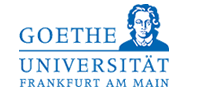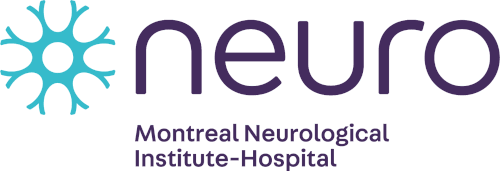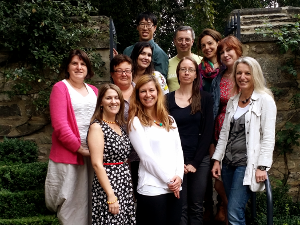 |
 |
 |
 |
 |
 |

Led by:
Susanne Müller-KnappEpigenetics refers to the regulation of genomic functions, including gene expression that are brought about by changes in DNA methylation and/or histone tail modifications. These two epigenetic mechanisms work in concert, with alterations in DNA modification affecting chromatin conformation and vice versa. In part epigenetic modifications are inherited, but unlike the genome itself, they are cell specific, plastic, and responsive to environmental influences.
Differential post-translational modifications of histone tails by lysine acetylation and methylation, phosphorylation and recently also crotonylation make up the epigenetic code which is responsible for modulation of gene regulation in normal cell differentiation and in disease.
The Epigenetic probe project aims to generate well characterised tool compounds ‘probes’ against key enzymes and recognition domains involved in histone regulation of transcription and provide them freely to the scientific community to increase the knowledge of these proteins in biology and disease.
Susanne Müller-Knapp is the Project Manager for the Oxford site, which focuses on inhibitors involved in modification and recognition of modified lysines in histones, namely histone lysine demethylases, Bromo- and Tudor domain containing proteins. Bromodomains are small protein recognition domains, which mainly bind acetylated lysine, whereas Tudor domains recognize methylated lysine. Histone demethylases are the most recent family of histone-modifying enzymes discovered that remove methyl groups from the terminal amine of histone lysine residues.
The group establishes and runs cell based assays for the different epigenetic targets to test the in vitro characterised tool compounds for cellular activity.
Group Members

Clarence is currently a Post-doctoral Research Scientist under Dr. Susanne Müller-Knapp at the Target Discovery Institute and Structural Genomics Consortium. His work focuses on developing high-content cellular assays for identifying potent inhibitiors against chromatin modifiers such as demethylases and bromodomains. In 2013, he was awarded a grant from the Medical Research Fund to further develop FRAP, one of the SGC's most successful cellular assays to date. He is also Head of Microscopy at the Botnar Research Centre where he collaborates extensively with the group of Professor Udo Oppermann. His other collaborative research interests include:
a) identifying single molecule interactions by super-resolution microscopy or fluorescence correlation spectroscopy (with the Ludwig Institute for Cancer Research and the Kennedy Institute of Rheumatology)
b) visualizing extracellular matrices in 3D tissues by non-linear optical imaging (with the Botnar Research Centre)
c) using two-photon lasers to temporarily permeabilize cells (a technique called optoporation) for the purpose of delivering ‘cargo’ into cells without the need for fixatives (with the Wellcome Trust Centre for Human Genetics)

